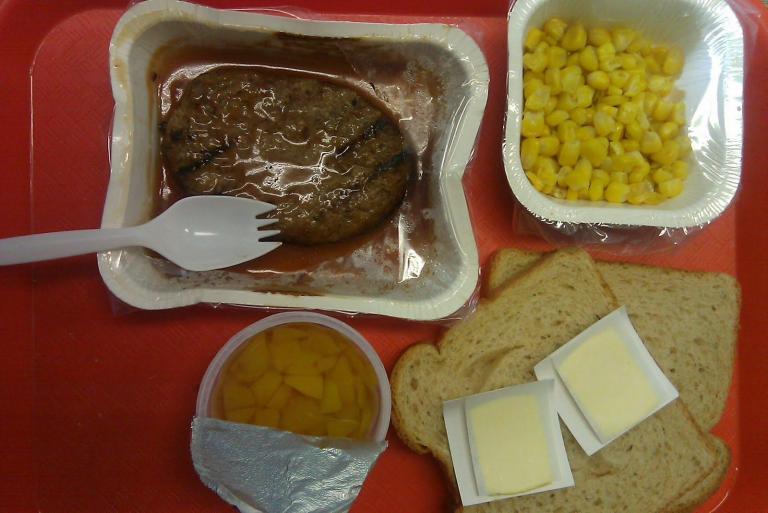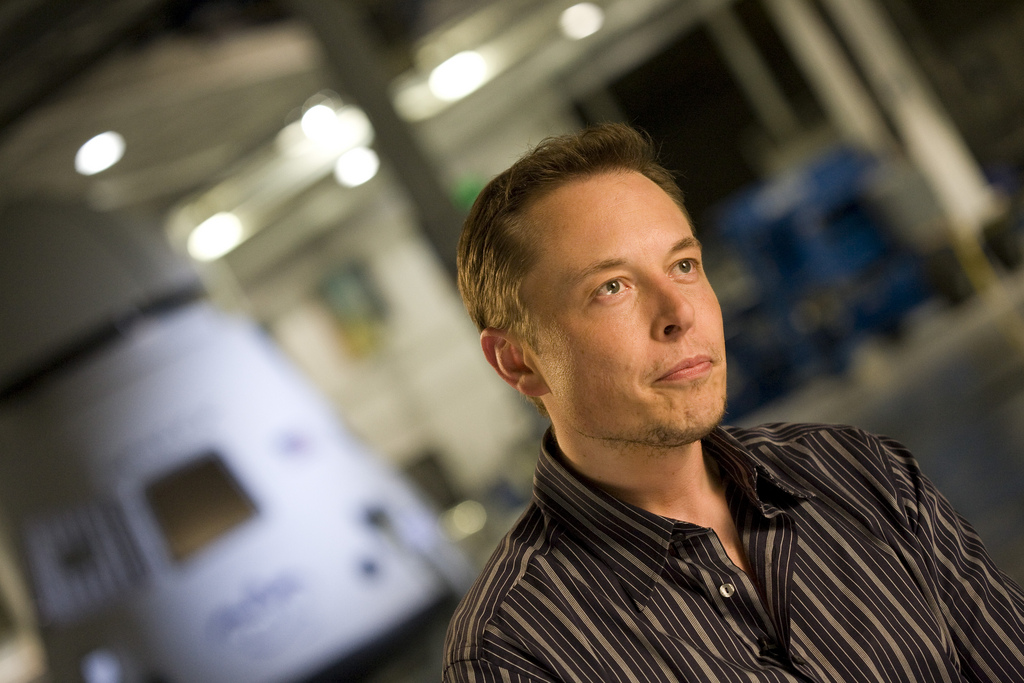We live in a world where I can say: “Elon Musk, leader of the space transportation company SpaceX, just announced that Tesla will be churning out Powerwalls from its Gigafactory in the desert by 2017,” and it makes complete sense. If that doesn’t make you excited about living in the 21st century, I don’t know what will.
Early this morning, Musk announced his new battery business: Tesla Energy. His goal is to riddle the world with much-needed solar power storage devices that will usher us into a post-fossil fuel, carbon-zero future, thus saving humankind from climate apocalypse (so, um, what have you been up to this morning?).
Speaking to a packed room powered entirely by the company’s first line of batteries, Musk kept things pretty simple:
“We have this handy fusion reactor in the sky called the sun. You don’t have to do anything — it just works, shows up every day, and produces ridiculous amounts of power.”
But here’s the problem: the damn thing disappears at night. So if the world is going to go solar, it needs batteries. More specifically, it needs new batteries, because — as Musk so eloquently put it — current batteries kind of “suck.” In fact, they’re just “really horrible,” not to mention pricey and unreliable. And to top it all off, they’re “sort of stinky, ugly, bad in every way.”
Okay, man, we get it — you really hate today’s batteries. What are you gonna do about it?
He’s gonna unveil a sleek, wall-mounted home battery called the Powerwall. That’s what. Here are the Powerwall’s specs, according to the Tesla website:
The Powerwall is available in 10kWh, optimized for backup applications or 7kWh optimized for daily use applications. Both can be connected with solar or grid and both can provide backup power. The 10kWh Powerwall is optimized to provide backup when the grid goes down, providing power for your home when you need it most. When paired with solar power, the 7kWh Powerwall can be used in daily cycling to extend the environmental and cost benefits of solar into the night when sunlight is unavailable.
Tesla’s selling price to installers is $3500 for 10kWh and $3000 for 7kWh. (Price excludes inverter and installation.) Deliveries begin in late Summer.
For reference, the average household consumed about 900 kWh of electricity per month in 2013.
Tesla also plans to build industrial-scale versions of the battery called Powerpacks, which will come in 100kWh units and could cost around $25,000. Musk said that with 2 billion Powerpacks, the entire world could run on the sun.
Okay. So this all sounds very exciting, and while Musk is a really smart dude, we must remember that he’s also a savvy businessman: he owns a majority share of the residential solar provider SolarCity, which will be partnering with Tesla Energy. And he certainly knows how to work a crowd with that subtle South African accent of his. People will surely start to poke holes in the Powerwall hype. Forbes is already kicking things off with this critique of the battery’s cost: “Why Tesla’s Powerwall is just another toy for rich green people.”
Still, it’s hard not to root for Musk. He’s genuinely concerned about the fate of humanity (so much so that he wants to colonize Mars) and has become a leader in the fight for a zero-carbon future, even though he easily could’ve just taken his big brain and gobs of money off to some secluded island somewhere.
Last year, Tesla announced that it would make all of its electric vehicle technology patents open source, allowing competitors to take a peak and build off of what they’ve already done. The same policy will hold true for the new battery technology.
During the big unveiling, Musk said that he believes solar power is the answer to our current climate crisis:
“It’s the only path that I know that can do this, and I think it’s something that we must do and we can do and that we will do.”
Preach, Elon. And while you’re at it, please keep using names like “SpaceX” and “Powerwall” and “Gigafactory,” so every time you’re in the news, the world can collectively geek out and yell: “The future is now!”




